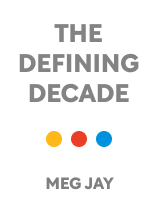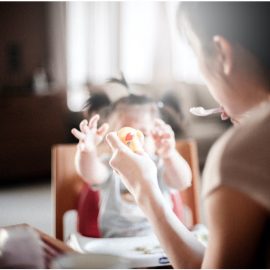

This article is an excerpt from the Shortform book guide to "The Defining Decade" by Meg Jay. Shortform has the world's best summaries and analyses of books you should be reading.
Like this article? Sign up for a free trial here .
What is dating down? Is it bad for your happiness and future plans?
In The Defining Decade, Meg Jay says that not dating down is an important part of finding a life partner. Dating down means dating someone you would’ve dated in your past, before you were mature or at the point in your life you’re at now.
Read more about dating down and why you should avoid it.
Finding Love and Why Dating Down Is Bad
Planning for a career has a different status in our culture than does planning for a marriage. Having a specific and measurable career plan is socially acceptable and admired by many. To help you plan a career, you have a wide variety of resources available to you, including books, classes, counselors, and consultants.
Having a specific and measurable marriage plan is not as socially acceptable. It is often mocked. And there are far fewer resources available to help you; universities don’t offer classes on it and unless you go “downmarket” to talk shows where marriage is more commonly discussed, there’s not a lot of public discussion about it.
And yet, choosing a marriage partner arguably has a far more lasting effect on your long-term happiness. You can revise your career many times over the course of your life, but your life partner is far less modifiable. You can’t just leave a marriage like you can leave a bad job; after divorce, you may be permanently linked to your ex both financially and logistically through children or other ties.
Furthermore, though they may not openly admit it, and while it’s not often acknowledged in pop culture, young adults do generally want to get married. In the United States, about half of young adults marry by age 30, 75 percent by age 35, and by age forty, 85 percent are married.
While it might not be politically correct to be strategic about finding a relationship, as it violates the ideal of having a relationship find you, unexpectedly and uncontrollably, the truth is being strategic is very important. Give it serious thought now, in your twenties, so you don’t find yourself settling later. There are some guidelines that can help you approach the subject mindfully and purposefully and prevent you from dating down.
- Don’t date down: Don’t date people you outgrew several years ago.
- Seek a similar personality: People with similar attitudes are generally happier.
- Don’t cohabitate, or do it wisely: Move in together only under certain circumstances.
- Pick a partner with your family in mind: When choosing a mate, remember you’re also creating a family.
- Don’t delay marriage to prevent divorce: It’s not the deterrent you might think.
Don’t Date Down
Dating down means dating a person you would have dated in a previous period of your life, when you were less mature and less developed. When you date people you’ve outgrown in maturity, experience, and insight, you prevent yourself from finding a person you have a more meaningful connection with.
Often, a person dates down when she holds negative beliefs about herself leftover from childhood influences. Her identity stories reflect difficulties from her past. For example, someone who was neglected as a child might have a low opinion of her own worth. She might consequently date people with lower career ambitions with whom she doesn’t share a stimulating intellectual connection, because of a mistaken belief that she’s lucky to have anyone at all.
We start to form our identity stories in adolescence. These stories are born of our experiences and take shape according to how we think other people see us. When they are negative stories, they can stop us from carrying through on our long-term goals. However, when our identity stories are positive, they can inspire and guide us.
Fortunately, you can change the stories you tell yourself about yourself. When you feel yourself making a mistake you know you’ll later regret, pause. Take notice of what is driving that decision. Listen carefully to your identity stories and recognize which parts of them come from other people’s judgments, evaluations, and advice. Examine those elements and decide which ones you can disregard. Then find a new story to take its place.
When you stop acting reactively to unconscious beliefs, you can slow down and allow yourself room to closely examine how those beliefs are influencing your decisions. For example, someone who was raised by emotionally abusive parents and bullied as a teen might find herself, in her twenties, having serial one-night stands. Until she stops and confronts the identity stories that are driving her, she’s unlikely to take control of her romantic life. But once she interrupts her habits of reaction and consciously acknowledges the childhood voices in her head, she can start to see that she no longer has to give those voices power. She can think about what she truly wants out of a relationship and start acting more purposefully towards that goal.
In your twenties, your childhood experiences no longer have to define you. Confront your past and then look forward to your future: Look at who you are now and what you’ve accomplished, and focus on where those traits can lead you, and can help you avoid dating down.

———End of Preview———
Like what you just read? Read the rest of the world's best book summary and analysis of Meg Jay's "The Defining Decade" at Shortform .
Here's what you'll find in our full The Defining Decade summary :
- Why the twenties are your most important decade
- How you were fooled into thinking it was an extended period of youth and freedom
- Why you should use this decade to find personal and professional success






